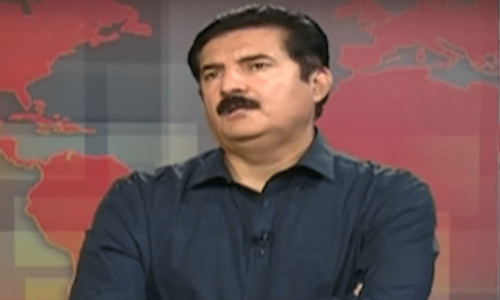ISLAMABAD: While the markup and dividend earnings of the federal government from the state-owned enterprises (SOEs) more than doubled in the first three quarters (July-March) of the current fiscal year, the provinces are unlikely to deliver the promised Rs600 billion cash surplus to the Centre if past trends are any indication.
The government has collected about Rs227bn on account of markup from loans extended to the SOEs in the first nine months (July-March) compared to just Rs85bn a year ago, a rise of almost 170pc.
Likewise, the dividend from government shareholding in various SOEs and privatised entities amounted to Rs64bn in July-March against Rs52bn last year, showing an increase of 23pc. The cumulative earnings — from both dividend and markup — in the nine months came in at about Rs291bn compared to just Rs137bn a year ago, showing an increase of 112pc.
SBP, oil and gas sector
Similarly, the government also earned another windfall profit of more than Rs972bn from the State Bank of Pakistan because of a record high 22pc policy rate in July-March compared to only Rs371bn a year ago, up almost 162pc.
Federal earnings from state-owned entities soar by over 100pc
Another lucrative source of windfall earnings was the oil and gas sector.
This is evident from Rs128bn royalties on oil and gas in the nine months compared to Rs88.5bn a year ago, an increase of 45pc.
Even larger revenues flowed from petroleum levy, almost doubling to Rs720bn from Rs362bn last year. The natural gas development surcharge contributed about Rs19bn to the national kitty this year compared to Rs11.7bn a year ago.
The fiscal operations data showed that the four provinces jointly provided the federal government a Rs435bn cash surplus. On the face of it, these surpluses appeared generally in line with the commitments made by the provinces to provide a Rs600bn surplus to the federal government to contain the consolidated national fiscal deficit at 6.53pc of GDP.
In line with commitments with the International Monetary Fund (IMF), the government had targeted its Rs7.5tr fiscal deficit (7.13pc of GDP) to Rs6.9 trillion (6.5pc of GDP) at the end of the fiscal year with Rs600bn budget surpluses. The lender has already estimated Pakistan’s fiscal deficit to be 7.4pc of the current year based on Rs600bn provincial surplus.
However, past records suggest that these commitments have never been met. For example, the four provinces had provided Rs456bn cash surplus in the first nine months of last year, but it melt down to Rs154.5bn when the accounts were closed on June 30, 2023. The Rs750bn target for provincial cash surplus was, thus, missed by a massive margin of almost Rs600bn.
The data showed that Punjab provided slightly over Rs156bn in the first nine months of the current year compared with a much larger surplus of Rs263bn a year ago. The Punjab government, however, could protect only Rs90bn surplus when the fiscal year ended on June 30, 2023, as savings in the first three quarters slipped out of hand in the last quarter.
Likewise, the Sindh government has come up with a Rs77bn cash surplus in July-March this year. During the same period last year, the province offered almost 100pc higher cash surplus at Rs145bn but ultimately it slipped down to mere Rs50bn at the end of the year.
The Balochistan has now offered more than Rs137bn cash surplus compared to Rs43bn a year ago. At the end of last fiscal year, Balochistan’s surplus turned to a fiscal deficit of Rs2.5bn.
On the other hand, the Khyber Pakhtunkhwa government has showed Rs64.5bn fiscal surplus this year, substantially higher than just Rs5.4bn of comparable period last year, perhaps because of greater control of the federal government through the caretaker government.
Last year, KP concluded its budget surplus at Rs16.4bn.
In fiscal year 2021-22, the four provinces had generated Rs600bn cash surplus in the first nine months, which declined to Rs351bn by the end of that year. Likewise, in 2020-21, the provinces offered Rs413bn surplus in the first nine months, which dropped to Rs313bn over the subsequent three months.
Published in Dawn, May 6th, 2024















































